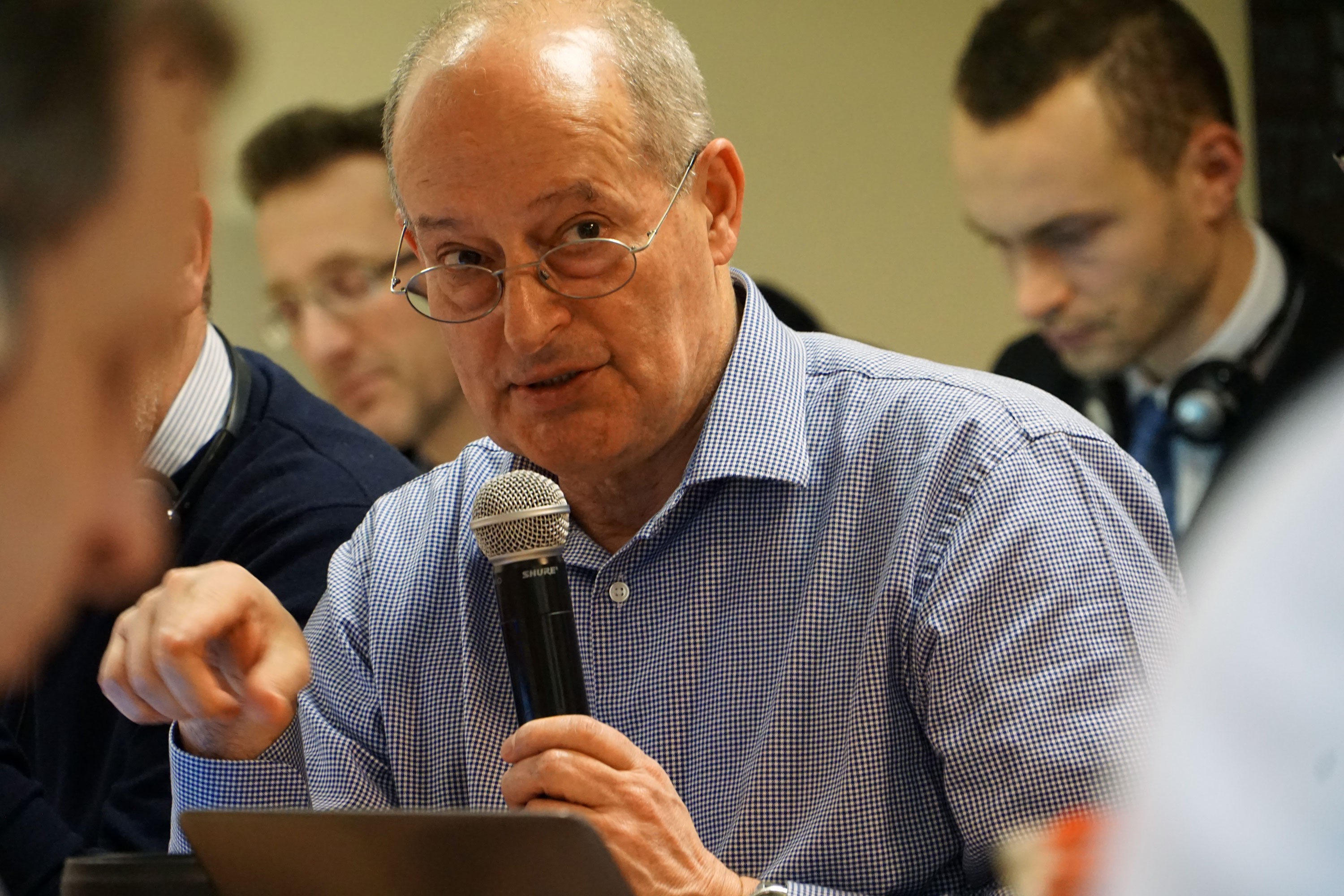Miklós Haraszti to present his last report on Belarus Document

Miklós Haraszti, UN Special Rapporteur on Belarus, during a meeting at the Belarusian Human Rights House in Vilnius. January 31, 2018
On June 25, Miklós Haraszti, UN Special Rapporteur on Belarus, is expected to present his sixth and last report on the human rights situation in Belarus within the 38th session of the UN Human Rights Council in Geneva.
The report covers the period from April 1, 2017 to April 30, 2018, but also provides an overview of the entire six-year tenure of the mandate with evidence of cyclical problems with human rights in Belarus.
As in previous years, because of the impossibility to travel to the country to research the human rights situation, the Special Rapporteur based his assessment on public statements and reports by the government, as well as numerous reports received from members of the country’s civil society, human rights defenders, families of political prisoners and missing persons, diplomats and UN agencies.
Mr. Haraszti notes that “during the six years since the Human Rights Council established the mandate of the Special Rapporteur, Belarus has been governed by a purposefully repressive legal framework, aggravated by regularly recurring, centrally planned violent crackdowns on peaceful demonstrators, nongovernmental organizations (NGOs), political opponents, human rights activists and independent media workers.”
Other crucial issues include imprisonment of political opponents on trumped-up charges and the regular application of the death penalty.
“The Government has not addressed the following entrenched systemic human rights shortcomings analysed in 2011 by the then United Nations High Commissioner for Human Rights: the absence of rule of law, the stifling of the expression of any dissenting view, the lack of media pluralism and the case-by-case authorizations-based regime of enjoyment of the right to the freedoms of association and peaceful assembly. The practice of depriving citizens of their civil and political rights continues to have a detrimental effect on the enjoyment of economic, social and cultural rights,” the report says.
It reflects issues related to freedom of opinion and the media, freedom of association and freedom of peaceful assembly, conditions for the work of civil society, use of torture and other ill-treatment, arbitrary detentions and arrests, enforced disappearances, and the presence of political prisoners, as well as the death penalty, lack of transparency and electoral fraud, dependence of judges and lawyers on the authorities, and gender inequality and other forms of discrimination.
In addition, the Special Rapporteur emphasizes the poor position of human rights defenders and notes that their situation is getting worse and acts of harassment are orchestrated by the government and have a systemic nature.
“As no tangible progress on systemic issues has been achieved, the Special Rapporteur is of the view that there is no reason to discontinue the international scrutiny of the human rights situation in Belarus, all the more so given that no regional scrutiny is applicable owing to the exclusion of Belarus from membership of the Council of Europe because of the retention in the Criminal Code of the death penalty and its regular application,” the UN expert concludes, stressing that the continued existence of the mandate is key to the survival of a nucleus of civil society organizations working on human rights issues.
The powers of Miklós Haraszti as the UN Special Rapporteur on the human rights situation in Belarus expire in late October. During the last months of his tenure, apart from the submission of the report to the UN Human Rights Council, he will present it at the UN General Assembly in New York.
The mandate of the Special Rapporteur on the human rights situation in Belarus of the UN Human Rights Council was introduced in 2012 in connection with the massive repression in the country after the 2010 presidential election. The Government of Belarus does not recognize the mandate of the Special Rapporteur and refuses to interact with him. Mr. Haraszti has not been allowed to visit Belarus in his official capacity, since it requires an official invitation of the authorities. However, in early July 2017, Haraszti arrived in Minsk on the invitation of the OSCE to take part in the activities of the 26th session of the OSCE Parliamentary Assembly, and also attended the parallel civil society forum. He expressed hope that his only visit to Belarus will be the first step towards official recognition of the UN Special Rapporteur's mandate. However, the Belarusian Foreign Ministry stated that the position of the official Minsk will not change.

















